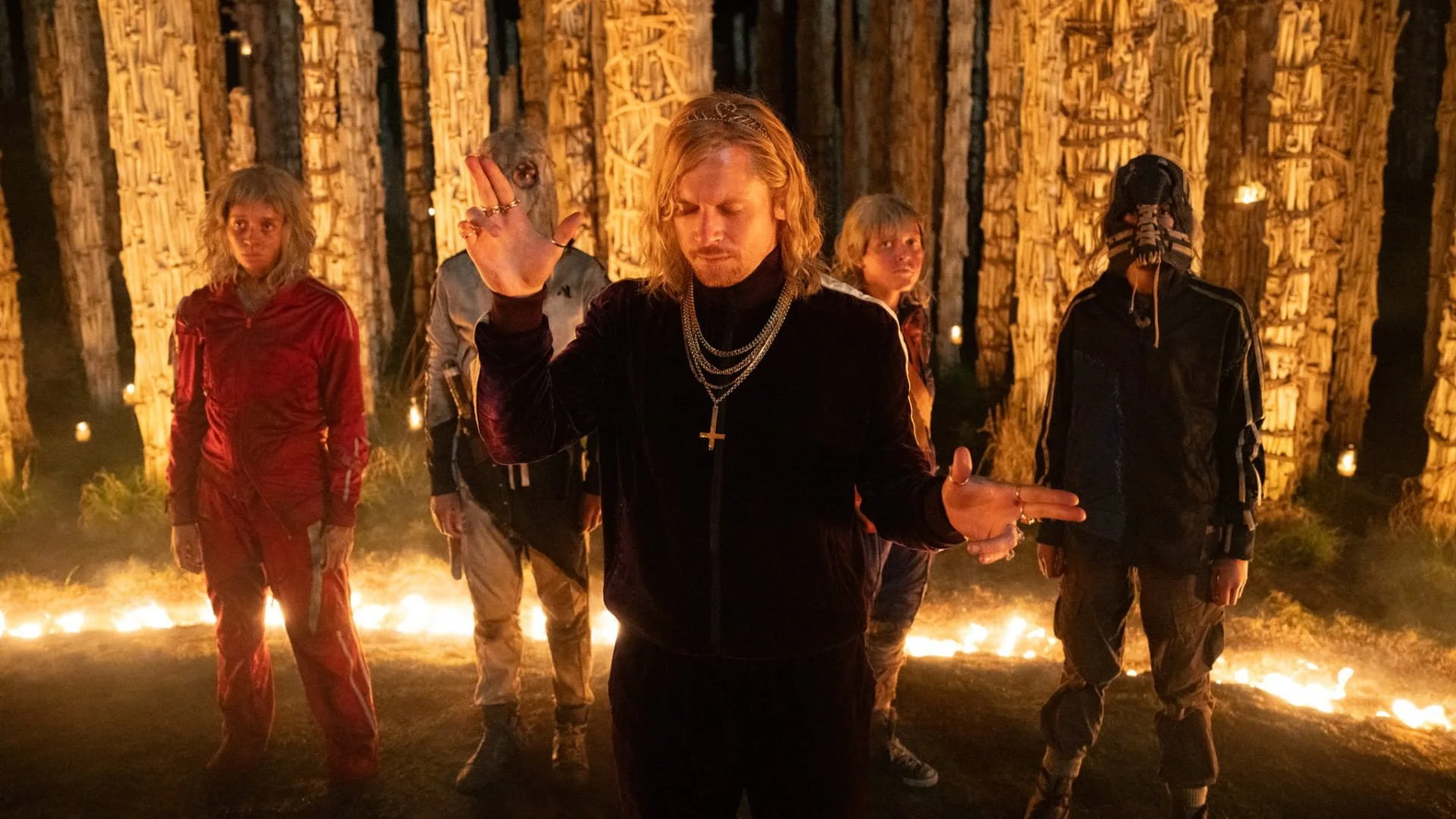Review: A Real Pain (2024)
Jesse Eisenberg’s sophomore directorial work (after 2022’s When You Finish Saving the World) is a surprisingly nuanced buddy-travelogue dramedy. Eisenberg and Kieran Culkin play cousins, David and Benji Kaplan, who were once very close and who come together again after the death of their beloved grandmother, a Holocaust survivor originally from Poland. In her will, she left the two cousins some funds to finally visit Poland, to see the memorials to the Holocaust as well as the house she lived in in the town of Krasnystaw. Setting consideration of terrible historical atrocities alongside the often humorous tensions between contrasting family members, all while detailing a coherent tour of Poland, sounds unwieldy on paper. The film’s success is due firstly to Eisenberg’s restraint in terms of direction, rarely forcing the emotional crescendo, and, secondly, to Culkin’s performance which is at turns hilarious, annoying, and lifelike.
Like in any buddy movie, the two main characters have opposite personalities. Eisenberg makes the contrast almost total, apart from their common American Jewishness. Eisenberg’s David is anxious, restrained, successful, living in Manhattan with a wife and young child. Eisenberg is fine, hitting the moments he needs to hit, but his character is basically our impression of Eisenberg in real life and, more importantly, resembles nearly every performance he has given since I first noticed him in The Squid and the Whale in 2005. That said, given he is also directing the film, it’s smart for Eisenberg to not also try something too different on his end.
In contrast to David, Culkin’s Benji lives in his parents basement in upstate New York, but he lives openly and freely, whether with passion or in deep depression, whether embracing the zest of life or lashing out in frustration at other people and society. Most of us have met someone like Benji, who, as David observes, is both admirable and frustrating for his impulsiveness. As David confesses to their tour group at dinner one night, we might hate Benji and want to be him all at the same time. Unlike David, Benji is good with people, drawing authentic moments out of them, yet he is unreliable and irresponsible. Culkin never pushes the performance so far that he becomes Seann William Scott’s Stifler from the American Pie movies or a Zack Ghalifianakis absurdist character (both with the comments and beard), yet I laughed out loud at Benji at times. Understanding the film’s range in tone, Culkin conveys the deep sadness at the heart of Benji as well as his sudden attempts to seize, or flee, life.
(I will have to add that it is bizarre Culkin is nominated for Best Supporting Actor. He is easily the co-lead, but it must have been a marketing calculation, that he has a better chance of winning in that category. I bring it up since it might set up false expectations about Culkin’s time on screen. Make no mistake, Culkin carries the film.)
Using the contrast between David’s and Benji’s personalities, A Real Pain—with its purposely ambiguous title—poses the question: in the face of the pain of life, especially its worst expression in the horrors of the Holocaust, how should we live? Does one have a responsibility to live wisely or to live fully? Are these approaches actually in opposition? Whether in its characterizations or its themes, Eisenberg’s film is calculated, well-calibrated, and conceptually pointed, yet the expression of these elements mainly remains subtle and restrained.
An example of this restraint is Eisenberg’s reliance on the piano music of Chopin for the score. Chopin was from Poland, before he left for France, and the choice seems almost too predictable for a Polish travelogue; likewise, emotional piano music also seems too predictable a choice to lay underneath the Holocaust subject matter. But Eisenberg is balancing all the tonal elements, so while the viewing of the concentration camp plays at our hearts in a fairly predictable fashion, it still works. More importantly, the music also lends a persistent layer of seriousness to other scenes, conveying the deep emotions that lie beneath Benji’s antics, and reminding us of life’s variance: a single moment can reverberate with both negative and positive emotions and associations.
The variance of life is communicated narratively and visually. Will Sharpe’s tour guide takes time to start his tour with a reminder of the Jewish uprising in the Warsaw Ghetto, saying that we cannot read the Holocaust as simply lambs led to the slaughter. We learn about the Jewish civilization that once thrived in Poland, albeit on the margins (literally in the ghettos), for centuries. From trains and tour vans, we watch what now look like lovely rolling green hills pass by, the battlegrounds and slaughter grounds of previous decades and centuries. We see what has become of their grandmother’s house—a fate I won’t spoil in this review.
This thematic duality is conveyed in the film’s opening and closing, which features Benji sitting in an airport. At the start, his openness to those around him looks intriguing; by the end, it looks desperate, a desire to avoid being alone with himself.
You might think this is strange, but at times I thought of Steve Coogan and Rob Brydon’s The Trip series. In both, a person’s turn towards humour can be just as revealing of their interiority as any other emotional reaction. Likewise, travel can be an opportunity to not only set two personalities against each other but also against larger backdrops. The buddy-travelogue genre is rich for comparison and contrast, allowing for unspoken observations, from the characters and from the audience. Eisenberg seems attentive to all this, which is why the film works.
8 out of 10
A Real Pain (2024, Poland/USA)
Written and directed by Jesse Eisenberg; starring Jesse Eisenberg, Kieran Culkin, Will Sharpe, Jennifer Grey, Kurt Egyiawan, Liza Sadovy, and Daniel Oreskes.



This mockumentary starring Matt Johnson and Jay McCarrol is a complex metafiction farce and a loving portrait of friendship and Toronto.